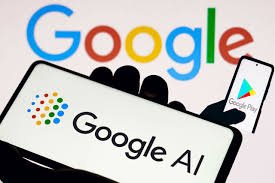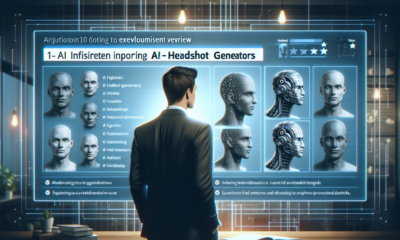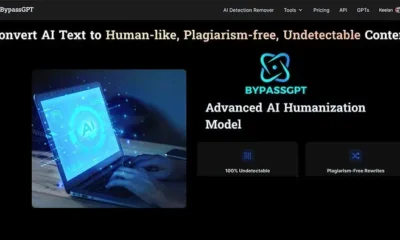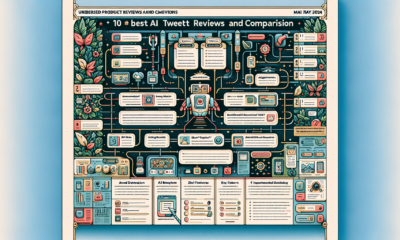AI Tool
Monetizing Intelligence: Google’s Paradigm Shift towards Paid AI-Powered Search

Google deliberates charging for novel “premium” functionalities fueled by generative artificial intelligence, constituting its most significant upheaval in the search sector to date.
The proposed overhaul to its lucrative search engine would signify the inaugural occasion wherein the corporation conceals any of its core offerings behind a pay barrier, underscoring its ongoing struggle with a technology that imperils its advertising enterprise, nearly 18 months post the advent of ChatGPT.
Google explores avenues encompassing the incorporation of specific AI-driven search functionalities into its premium subscription services, which currently grant entry to its pioneering Gemini AI aide within Gmail and Docs, per insights from three individuals privy to its strategies.
Engineers are actively crafting the requisite technology for service deployment, though executives have yet to reach a definitive verdict regarding the potential launch timeline, as disclosed by one of the informants.
Google’s conventional search engine shall remain accessible free of charge, with advertisements persisting alongside search outcomes even for subscribers.
However, the move towards monetization would mark the maiden instance wherein Google, long-renowned for furnishing free consumer utilities sustained entirely by advertising revenue, mandates payment for augmentations to its primary search product.
Google amassed $175 billion in revenue from search and affiliated advertisements last fiscal year, constituting over half its total earnings, presenting a quandary for the entity regarding the assimilation of cutting-edge AI innovations while safeguarding its primary profit engine.
Since November 2022, following OpenAI’s launch of ChatGPT, Google has been scrambling to counter the competitive menace posed by the immensely popular conversational AI. ChatGPT adeptly furnishes swift and comprehensive responses to myriad inquiries, potentially rendering obsolete a conventional search engine’s array of hyperlinks and the lucrative adverts accompanying them.
Google initiated trials of an experimental AI-driven search facility in May last year, proffering detailed responses to queries whilst continuing to furnish users with hyperlinks to supplementary information and advertisements. Nonetheless, the integration of features from its “Search Generative Experience” experiment into its primary search engine has been sluggish.
These search outcomes, inclusive of an “AI-driven snapshot,” incur elevated costs for Google compared to its conventional responses owing to the substantial computational resources demanded by generative AI. Access to SGE has been extended solely to a select cadre of users, including certain subscribers to its Google One bundle, which offers perks such as additional cloud storage for a monthly fee.
Microsoft, boasting an extensive collaboration with OpenAI, unveiled enhanced GPT-powered search and a chatbot, now dubbed Copilot, within its Bing search engine over a year ago. Nevertheless, these novel AI features have failed to substantially enhance Bing’s market share, which significantly trails behind Google.
Several analysts caution that Google’s advertising enterprise could suffer should its search engine furnish comprehensive AI-generated responses obviating the necessity for users to navigate to its advertisers’ websites. Moreover, numerous online publishers reliant on Google for web traffic express apprehension that reduced user traffic will ensue should Google’s AI-driven search extract information from their webpages for direct user presentation.
This year, Google introduced a new premium tier within its Google One consumer subscription service tailored for users desiring access to its most advanced Gemini chatbot. Furthermore, Gemini has been incorporated into Workspace, Google’s suite of online productivity applications like Gmail and Docs.
The precise modus operandi for integrating AI-driven search into these subscription-based services, which offer distinct pricing tiers, and the readiness for the launch of the AI-powered search offering remain uncertain. According to individuals familiar with its deliberations, Google retains the option to gradually introduce specific elements of its experimental AI-driven service into its primary, free search engine over time.
Google asserts that it is “not developing or contemplating” an ad-free search experience but affirms its commitment to “continually enhancing our subscription offerings across Google” by developing novel premium capabilities and services.
“For years, we’ve been reimagining Search to facilitate information access in the most intuitive manner,” stated Google. “Through our generative AI forays in Search, we’ve already fielded billions of queries, witnessing positive query growth across all major markets. We’re incessantly refining the product to meet evolving user requirements.”
It appended, “We have no announcements to make at present.”


























